Writing is the process by which we make sense of things; convert our disparate, chaotic thoughts and unrefined theories into clarity. This is why every Jewish writer will at one time turn their mind to the question of ‘why the Jews?’
Philip Roth believed it all began with The Merchant of Venice and the very first words that Shakespeare put on the lips of Shylock – ‘3,000 ducats’, referring to the currency of Venice. According to Roth, the association with the evils of greed, money and vengefulness was forever forged.
A few years ago I wrote for Newsweek on the antisemitism scandal that had engulfed Jeremy Corbyn. Professor Gus Lehrer, a wonderful intellect, liked the article and put to me a challenge: explain to a mainstream audience that the instinctive contempt for the Jewish community which Corbyn had displayed was, whether he fully grasped it or not, the product of centuries of conditioning that had successfully branded the Jews as untrustworthy, scheming and wicked.
An earlier inciting moment had been the massacre of eleven elderly Jews in a synagogue in Pittsburgh in 2018. I did a series of media interviews in the days following that horror and I was asked, again and again, by incredulous hosts, ‘Why do people hate Jews so much?’ My answers were a potted history of the Jews as a plucky, stubborn little nation that had refused to be absorbed by great empires and new faiths, and so, as punishment for their chutzpah and to prove their inferiority, they were slandered and kept in a permanently degraded state as living evidence of their defeat. After a while, antisemitism left the realm of the rational and simply became an instinctive hatred for a small, weak and familiar oddity of a people who possessed no land, prayed in an extinct tongue and clung to old traditions. In times of turmoil when despots and the weak of mind craved an easy answer for war, economic ruin or pestilence, the Jew was there.
When I was a boy of 12, my parents bought their first home. A little piece of Australia that was now ours, the happy beginnings of a new life of promise and plenty. It was an old first-floor apartment a block from the hospital in Randwick. Directly, above us lived a migrant from Austria. He was in his sixties but still vigorous with a farmer’s build. When he first met my father, who has fair skin and blue eyes he was welcoming to a fault. Then he met my mother, with her more obvious Jewish features, and everything changed.
From that day, he would stand on his balcony night after night and bellow at us, alternating between a thunderous guttural roar and a sneering tone full of menace: ‘Hitler didn’t finish the job, I will finish it for him.’ He would pound on our door with his fists. Taunt us, threaten us. The police were called night after night but did nothing. They’re merely words, we were told. Nothing could be done. They wanted to see him act on his threats before intervening.
We eventually sold the apartment at a loss and moved away. But he stayed with me. His name stayed with me. His voice stayed with me. I would play it out in my mind over and over and ponder: Why did he hate us so? What did he think we had done? What did he think we intended to do beyond living simple, honest lives in a new land?
He surely would have had no coherent answer to these questions. But he knew with perfect certainty that the Jew, represented by my parents and their two boys, was something so loathsome, so repugnant, so unhuman, that he was justified in threatening repeatedly to kill a young family.
At times I would see him chatting breezily with neighbours. A fine upstanding family man who when placed in close proximity to a family of Jews became an animal. It was the moment when antisemitism stopped being something in stories and became real to me.
My research for my new book led me to the writing of an 8th-century Islamic historian, Ibn Ishaq, who noted that when the Prophet Mohammed appealed to the elders of the Jewish tribes that lived around him to adopt his new faith, they ‘annoyed him with questions’, testing his claims and propositions and finding them unconvincing.
I also discovered the Nuremberg Trial transcripts of the head of the Hitler Youth, Baldur Von Shirach who testified that the key antisemitic text that impacted him and his generation was Henry Ford’s The International Jew. ‘In the wretched and poverty-stricken Germany of the time, we looked to America,’ he said, ‘and to us, Ford represented America.’
I encountered charlatans like Pavel Krushevan who incited the Kishinev Pogrom in 1903 by distributing an antisemitic forgery called The Rabbi’s Speech, a knock-off of an earlier antisemitic work by the German writer of lame historical romances, Hermann Goedsche. Later appointed editor of St Petersburg’s leading newspaper, Krushevan published for the very first time perhaps the deadliest text ever written, ‘the warrant for genocide’, the Protocols.
I discovered the Sultan of Damascus, who carried out a public investigation of the blood libel and concluded that ‘the charges made against the Jews and their religion are nothing but pure calumnies [and] we cannot permit the Jewish nation whose innocence of the crime alleged against them is evident to be vexed and tormented upon accusations which have not the least foundation in truth’.
I found a distinct set of myths that shifted me away from the unknowable and largely academic ‘why’ of antisemitism to the urgent question of ‘how does it work?’ and ‘how can it be stopped?’ The answer was in the Seven Deadly Myths.
These myths together compose the canon of antisemitic lore, and which not only accounted for every atrocity inflicted but shaped the way in which the Jews have been perceived for centuries and to this day. Sometimes it was subtle and wrapped in political coda. During an escalation in the Israeli-Palestinian conflict in May 2021, Turkish president Erdogan said, ‘It is in their nature, they are murderers, to the point that they will kill children who are five or six years old. They are only satisfied by sucking their blood.’
Other times, it was arrestingly candid. In the manifesto he uploaded immediately prior to carrying out a lethal shooting at a synagogue in San Diego, John T. Earnest said, ‘You are not forgotten Simon of Trent, the horror that you and countless children have endured at the hands of the Jews will never be forgiven.’ A 15th-century case of a boy drowning in a canal for which Jews in northern Italy were burned alive was inciting fresh murder in 21st-century America.
And of course Kanye West, perhaps the most influential performer of the last decade who assembled virtually every antisemitic conspiracy theory, Jewish money, Jewish power, Jewish filth and pornography, Jewish enslavement of blacks, harnessed the great power of social media, unified antisemitic outliers across completely unrelated communities and movements, and spoke to millions with his tweets, his videos and the months-long podcast and media tour that hung on his every word and broadcast it to global audiences. The full impact of Kanye West’s mainstreaming of antisemitism may not be truly understood for some time. As Israel’s President Isaac Herzog says in his endorsement of my book, ‘By shifting emphasis from the ‘why’ of this puzzling and dangerous phenomenon to the ‘how’ of the mechanics of its transmission, we can actually confront and defuse it.’ It is my hope that my book can be a resource to expose the stupidity of antisemitism and how it preys on the mind.
Got something to add? Join the discussion and comment below.
Get 10 issues for just $10
Subscribe to The Spectator Australia today for the next 10 magazine issues, plus full online access, for just $10.
Alex Ryvchin is Co-CEO of the Executive Council of Australian Jewry. His new book is The Seven Deadly Myths – Antisemitism from the Time of Christ to Kanye West (Academic Studies Press)
You might disagree with half of it, but you’ll enjoy reading all of it. Try your first month for free, then just $2 a week for the remainder of your first year.

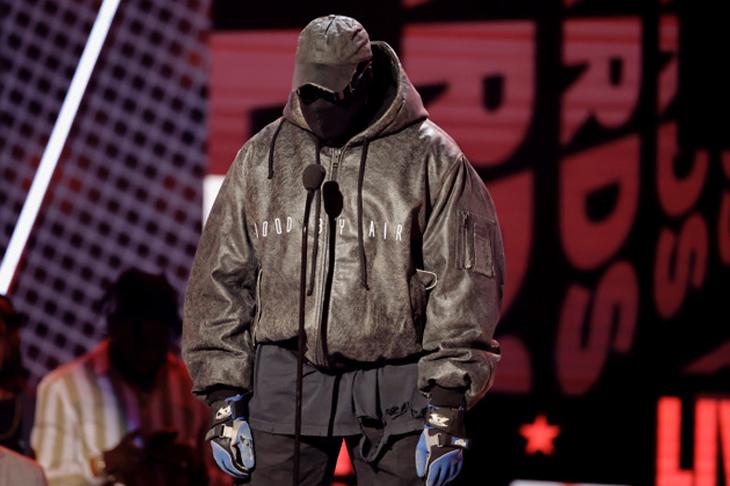

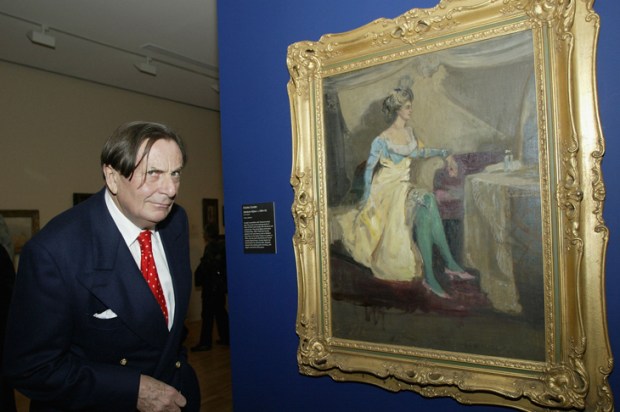
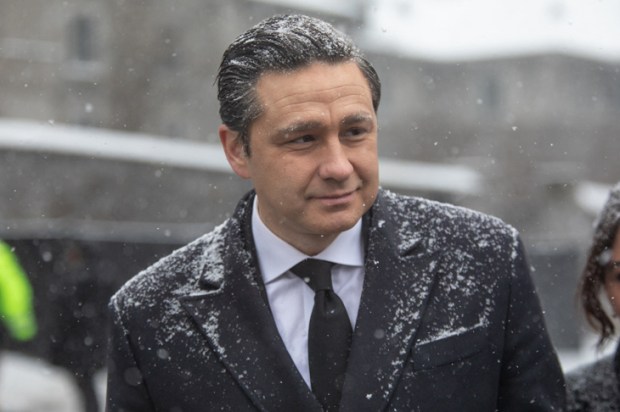

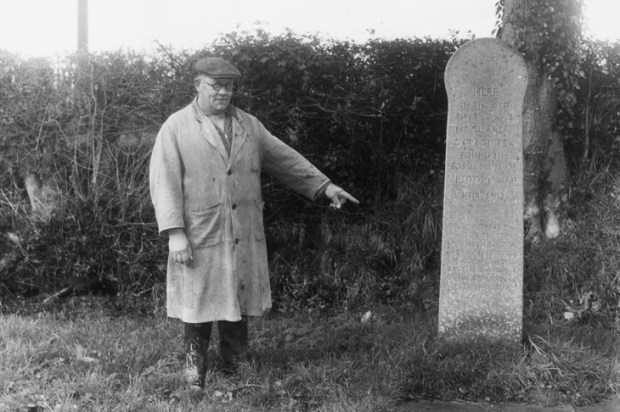
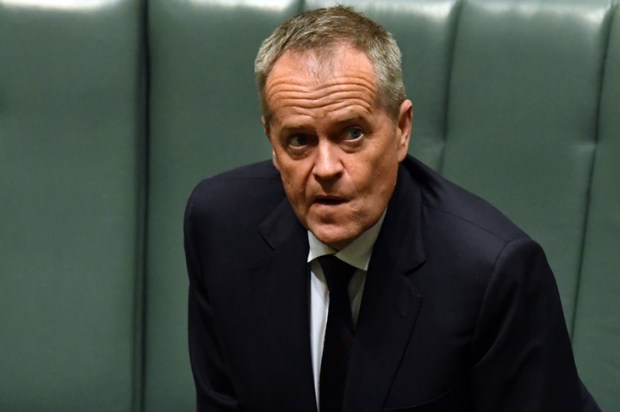






Comments
Don't miss out
Join the conversation with other Spectator Australia readers. Subscribe to leave a comment.
SUBSCRIBEAlready a subscriber? Log in